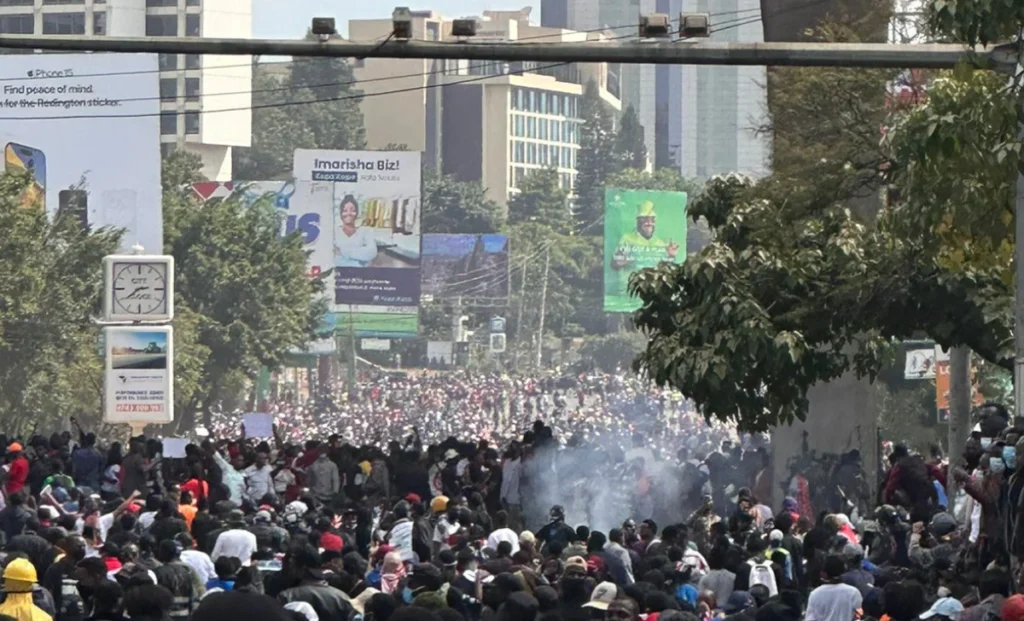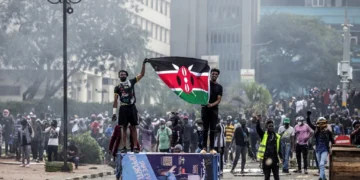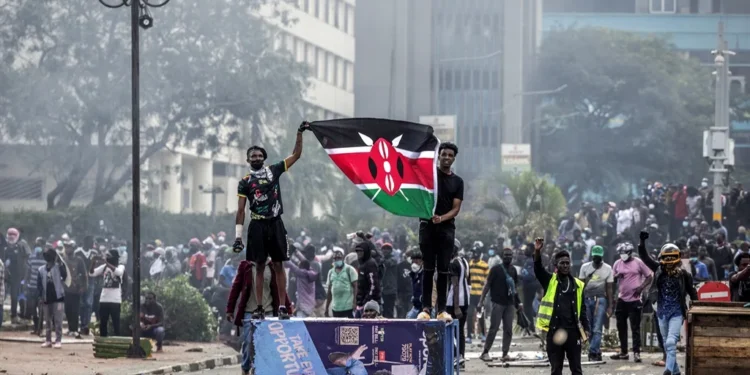Thousands of protesters stormed Kenya’s parliament Tuesday to protest tax proposals, burning part of the building, sending lawmakers fleeing and drawing fire from police in unrest that the president vowed to quash. Several people were killed.
It was the most direct assault on the government in decades. Journalists saw at least three bodies outside the complex where police had opened fire, and medical workers reported five people killed. Clashes spread to other cities. There was no immediate word on arrests.
“Today’s events mark a critical turning point on how we respond to threats to our national security,” President William Ruto said, calling the events “treasonous” and vowing to quash the unrest “at whatever cost.”
Kenya’s defence minister said the military had been deployed to support police during the “security emergency” and “breaching of critical infrastructure.”
Protesters had demanded that legislators vote against a finance bill imposing new taxes on East Africa’s economic hub, where frustrations over the high cost of living have simmered. Youth who had voted Ruto into power with cheers for his promises of economic relief have taken to the streets to object to the pain of reforms.
Lawmakers managed to pass the bill before fleeing through a tunnel as protesters outmanoeuvred police and poured in. The fire at the building was later put out.
The Kenya Medical Association said in a statement that at least five people were fatally shot while trying to treat wounded people at the scene. It said more than 30 people were wounded, at least 13 with live bullets. Police fired live ammunition and threw tear gas canisters at protesters who sought treatment at a medical tent at a nearby church. Elsewhere in town, Kenyatta National Hospital said it received 45 casualties.
One person shot dead was wrapped in a Kenyan flag and carried away. Another lay on the sidewalk, their head in the gutter.

Internet service in the country noticeably slowed in what NetBlocks called a “major disruption,” and at least one broadcaster issued a statement saying that “we have received threats from the authorities to shut us down.”
Ruto had been outside Nairobi attending an African Union retreat. He was expected to sign the finance bill into law this week. He has two weeks to act but faces calls from religious and other leaders to think again.
The nearby office of the Nairobi governor, a member of the ruling party, also was briefly on fire Tuesday, smoke pouring from its white facade. Police water cannons were used to extinguish the fire.
Protesters could be heard shouting, “We’re coming for every politician.”
The Kenya Human Rights Commission shared a video of officers shooting at protesters, and it urged Ruto to issue an immediate order to “stop the killings.”
The president instead said the government had “mobilized all resources” to ensure order.
On Sunday, Ruto tried to calm the rising public tensions, saying he was proud of the young Kenyans who came out to exercise their democratic duty in earlier protests. The politician who had promoted himself as a “hustler” from humble beginnings said he would engage them on their concerns.
By AP









